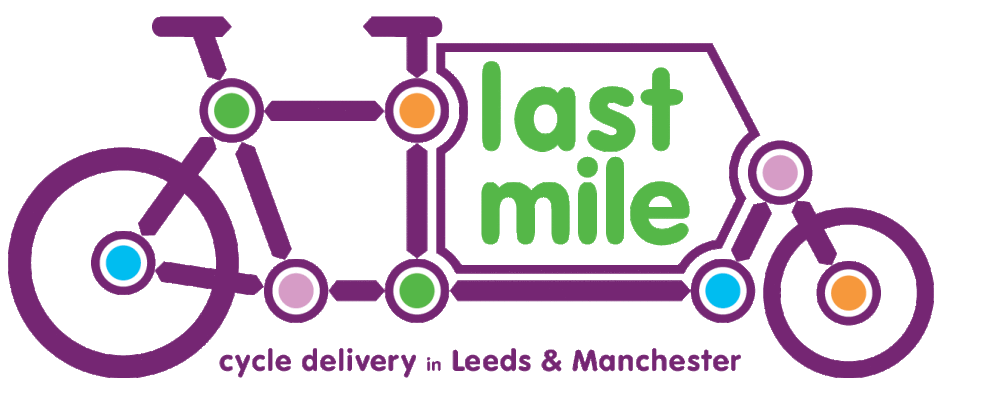The Role of the UK Cyclelogistics Federation
On 14th July 2012, Last Mile Leeds attended the inaugural meeting of the European Cyclelogistics Federation. Their website describes the federation thus:
The European Cycle Logistics Federation is a professional body which represents and supports the needs of cycle logistics companies across Europe.
The Federation is a membership organisation for:
- Established cycle logistics businesses (eg. delivery companies, couriers, pedicab operators, tradespeople, organisations which use cycles as part of their business operations, etc)
- Start-up businesses considering using cycles as part of their business operations
- Manufacturers and suppliers of cycle logistics equipment.
- Associates who have an interest in promoting the further use of cycles
The Federation is supported by CYCLElogistics, an EU funded project which promotes the delivery of freight by cycles and trikes.
But what should be the role of such an organisation in the UK? Here are few of my thoughts;
- UK specific. Firstly, there is a need to establish within the organisation, a space for UK cyclelogistics companies. Although it is great to be part of a Europe wide initiative, and we can certainly learn from our colleagues overseas, at least some of the issues we face in overcoming national attitudes to cycle use are specific to our own context. If we are only concerned with ‘big-picture’ policy then we will risk being irrelevant to small cargo bike operations. We could consider UK, and perhaps even regional meetings, though these need not be face to face and could take the form of conference calls etc.
- Sharing Experience. As is to be expected in a young industry, we are all learning. We could each gain much by learning from the experiences of others. At this stage in our industry’s growth, I feel that most of us recognise that anything that promotes the use of cycle logistics anywhere in the country is generally ‘good for business’.
- Partnership broking. Each of us have worked hard to develop business relationships and partnerships with our customers, but few of us have the reach to extend these partnerships nationwide. Either we can sit on them until we have grown our respective businesses into national carriers, or we can share them.
- Combined Representation. In the same way that Kissinger once asked, “If I want to call Europe, who do I call?”, if a multinational courier or nationwide retailer want to begin to include cyclelogistics in their delivery chain then where would they start? Either they have to hold multiple discussions with multiple different operators, potentially agreeing numerous different sets of terms and conditions or we can present them with a united front, and consistent standards of service.
- Marketing and Promotion. Fairly obvious this, but to what extent might we consider raising national awareness relevant to individual operations…and would we pay for it? There is however free marketing to be had by mutually promoting each others businesses and achievements through our own websites and social media.
- Quality standards. Each of us knows the strength of our own operation, but would probably not want to risk our reputation on that of others. Yet we can all gain from increased credibility of the industry as a whole. Rather than instigate a complicated system of regulation we might benefit from a simple system of either self (or perhaps peer) assessment. This might include such things as security, redundancy (can we operate if a rider falls ill ), longetivity, financial stability, whether we have the relevant insurances etc. Even having a set of external standards which members could assess themselves against could be useful in declaring our respective competancies to deliver what we say we can to potential partners.
- Managing competition. The elephant in the room here is competition. Even though, on the whole, we are not competing directly as we are operating in different cities, might we be in the future? How many of us would like to expand our operations, and what would happen when two members overlap? Overall competition is good, and it would be a mark of a maturing industry when most towns or cities had at least two cyclelogistics operations. I don’t know exactly what the role of the Federation would be, but I would hope it would help avoid turf wars and price wars.
I have posted a link to this on the Cyclelogistics forum, and although I will leave comments open below, I suspect discussion there will be more fruitful.
